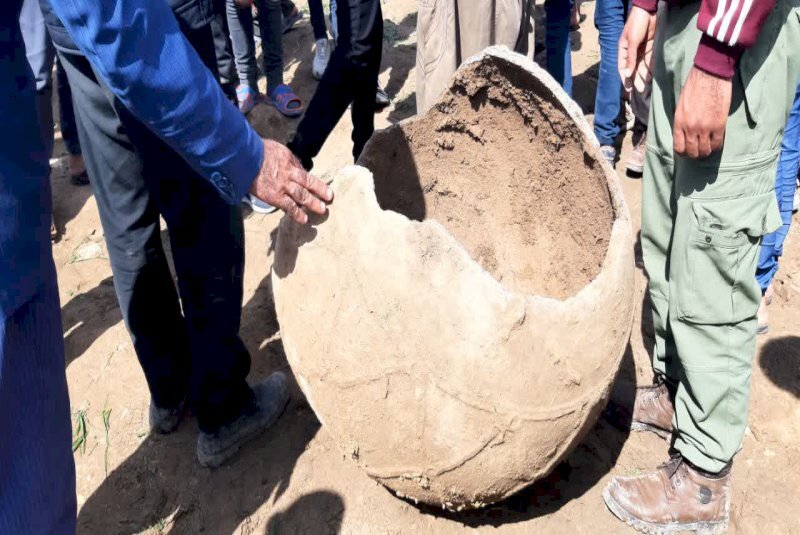Sassanid jug discovered accidentally in southwest Iran

TEHRAN –An earthenware jug, estimated to date back to the Sassanid era (224–651), has recently been unearthed accidentally in Dishmok, a mountainous town in southwestern Kohgiluyeh-Boyer Ahmad province, a senior police official in charge of protecting cultural heritage has said.
Recent rains and landslides have revealed the historical relic in this area, Mokhtar Torab said on Wednesday.
As soon as locals reported finding a historical object, a unit was dispatched to the area and the large jug was pulled out of the ground, the official added.
In many ways, Iran under Sassanian rule witnessed tremendous achievements of Persian civilization. Experts say that the art and architecture of the nation experienced a general renaissance during Sassanid rule.
In that era, crafts such as metalwork and gem engraving grew highly sophisticated, as scholarship was encouraged by the state; many works from both the East and West were translated into Pahlavi, the official language of the Sassanians.
The legendary wealth of the Sassanian court is fully confirmed by the existence of more than one hundred examples of bowls or plates of precious metal known at present. One of the finest examples is the silver plate with partial gilding in the Metropolitan Museum of Art in New York. The dynasty was destroyed by Arab invaders during a span from 637 to 651.
ABU/AM
